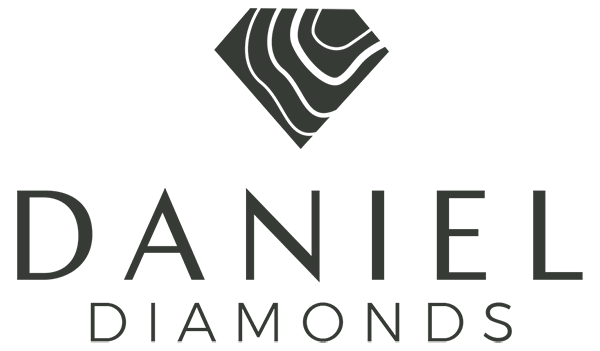An ethical, sustainable diamond engagement ring is a way to express your commitment and your shared values. This guide helps you identify conflict-free diamonds, find socially responsible jewelers, and shop for eco-friendly engagement rings.
Choose a Certified Conflict-Free Diamond Ring
Conflict diamonds, or blood diamonds, are named for stones sourced from countries where mining and selling the diamonds funds violence and wars. Finding an ethical and sustainable engagement ring begins by choosing a jeweler with the right gemstone sources.
Ask if your jeweler offers newly mined, raw diamonds acquired via the Kimberley Process. The Kimberley Process is an import/export certificate that proves a raw diamond was shipped from a conflict-free zone. It doesn’t prove it wasn’t mined in a conflict zone and doesn’t cover any previously cut or polished diamonds, but it’s a start.
The gemstone trade is complicated and lacks perfect transparency. It’s difficult to be absolutely sure that your natural stone is conflict-free - unless your diamond was mined and exported from Canada.
Only Canadian Diamonds are Guaranteed to be Conflict-Free
Diamonds were discovered in Canada about 20 years ago. Today, Canada is the third largest diamond producer providing about 15% of the world’s supply of diamonds. The Canadian Government feels so strongly about its sustainable practices that they oversee every aspect of the mining process to certify each diamond as 100% ethically mined.
All diamonds from Canada should come with a Certificate of Authenticity. This certificate specifically identifies that the gem was mined in Canada under strict laws and practices.
Choose an Ethical, Lab-Grown Diamond Ring
In 2020, the lab-grown diamond market was valued at $1.6 billion worldwide and is projected to grow to $5 billion by 2027 (source: Yahoo Finance). If lab-grown diamonds are just like natural diamonds, what’s the difference?
Price and impact.
Lab-grown diamonds are increasingly popular because they are beautiful and affordable, making them an attractive option for couples on a budget. You may want a stunning ring and a down payment for a house.
Manufactured diamonds are also a bit easier on the environment (although it takes considerable energy to produce) and doesn’t involve exploitative labor practices. That’s why we vet all our suppliers and only buy from those with the highest commitment to sustainability.
Synthetic diamonds are not valued at the same price as natural diamonds, and their monetary value will likely drop as the technology improves. Most diamonds, like the ones in a typical engagement ring, do not appreciate in value or retain the price paid for them at any retail store. You purchase them because you love the way the ring looks.
If you’re looking for an investment diamond, you are looking for large natural stones in very rare colors. These one-of-a-kind diamonds are specially ordered to upgrade an existing setting or to fit a custom design.
Choose an “Upcycled” or “Recycled” Diamond Ring
Another option for socially conscious consumers is a recycled diamond. These diamonds can be sourced from family heirlooms, antique shops, or local gemstone vendors. At Daniel Diamonds, we buy diamonds from estates and accept diamonds on trade, so we can supply clients with upcycled diamonds. We’ll help reimagine these pieces into something made just for you.
Even though the origins of your “used” diamonds may be a mystery, your purchase re-purposes a stone already mined, so it doesn’t contribute to the demand for natural stones. A used or recycled diamond can also be less expensive than one that is naturally grown but ethically sourced.
Ask About Your Jeweler's Conflict-Free Diamond Practices
Before you purchase a conflict-free diamond, it’s important to do your due diligence and research the jeweler’s business practices to ensure that their diamonds are, in fact, conflict-free.
Here are three questions you can ask your jeweler about ethical sourcing:
- Where are the diamonds or gemstones sourced from?
- Do they provide certification of conflict-free status?
- Do they have an auditing protocol that ensures ethical production, and what is it?
It's also wise to read reviews of each jeweler and find out what other people have experienced purchasing from them.
Daniel Diamonds Offers Ethical, Sustainable Engagement Rings
For generations, our family has sourced, cut, and sold wholesale diamonds and other semi-precious stones. Our shared history and extensive connections worldwide allow us to easily source unusual or rare gemstones - including conflict-free or lab-grown diamonds.
We hope this information helps you on your journey to finding the perfect engagement ring. If you’d like more personal assistance, we’re happy to meet with you (in person or via video chat). Use our online scheduler to find a time that works for you.


















